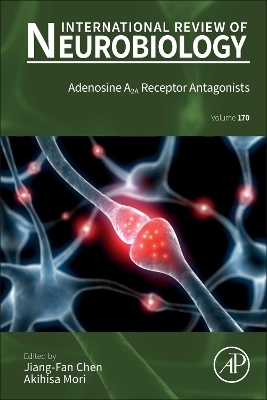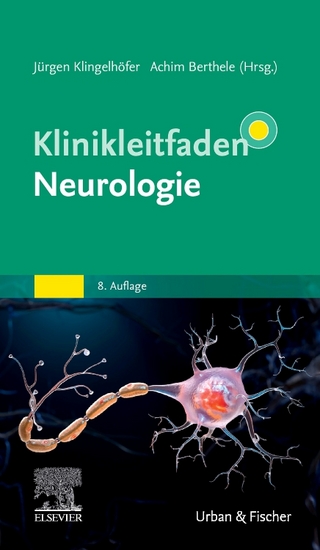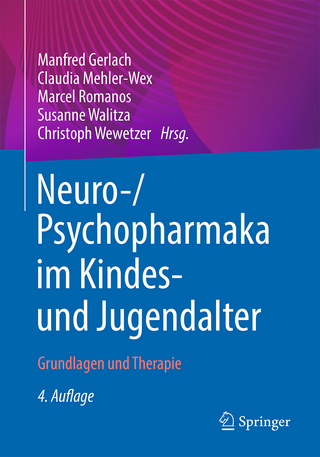
Adenosine A2A Receptor Antagonists
Academic Press Inc (Verlag)
978-0-443-18667-7 (ISBN)
Jiang-Fan Chen, MD, PhD, is an Associate Professor in the Boston University Medical Campus--Departments of Neurology and Pharmacology and Experimental Therapeutics. Dr. Chen’s research focuses on the neurobiology of adenosine and the A2A adenosine receptor and the role they may play in the development and treatment of neuropsychiatric disorders. Dr. Chen has developed an A2A receptor knockout mouse model and couples this genetic approach with pharmacological manipulation to explore the pathophysiological role of A2A receptors in animal and cellular models of neuropsychiatric disorders. The knowledge derived from these studies may provide the neurobiological basis for rational development of A2A receptor agents as treatment strategies for neuropsychological disorders, ranging from Parkinson’s disease to drug addiction. Akihisa Mori, Ph.D., is a global expert for Adenosine receptor neuroscience as well as Parkinson’s disease, having more than 3 decades experience to work for pharmaceutical industry from basic science, exploratory and translational research to global clinical development, for antiparkinsonian therapeutics. As for adenosine receptor neuroscience, he has discovered a functional significance of Adenosine A2A receptor in the basal ganglia as well as the adenosine A2A receptor antagonism mode of action as antiparkinsonian therapy. Also, he has made global leadership to develop a first-in class adenosine A2A receptor antagonist, Istradefylline, delivering the product to successful approval in the US and Japan. He has previously participated to be the Editor for volume 119 (Adenosine Receptors in Neurology and Psychiatry) of International Review of Neurobiology.
1. A2A Adenosine Receptor Agonists, Antagonists, Inverse Agonists and Partial Agonists Kenneth A. Jacobson 2. Chemistry – agonists, antagonists, partial agonists, inverse agonists Christa Müller 3. Functional roles of adenosine receptors – biochemistry and neuronal plasticity Ana Sebastiao 4. A2A and Depression Rodrigo Cunha 5. A2AR and glial function Zhihua Gao 6. The adenosine A2A receptor in the basal ganglia: expression in health and disease, heteromerization, functional selectivity and signalling Rafael Franco, Gemma Navarro and Eva Martinez-Pinilla 7. How and why A2a receptor become to be a therapeutic target in Parkinson’s disease therapy Peter Jenner 8. Development of A2a antagonists for Parkinson’s disease – clinical evaluation for motor and non-motor symptoms Yasar Torres-Yaghi 9. The role of A2AR in chemobrain and the potential therapeutic benefits of istradefylline Detlev Boison and Mi-hyeon Jang 10. Effects of adenosine A2A receptors on cognitive function in health and disease Anna G. Orr, Cinthia Garcia and Avital Licht-Murava 11. A2a receptor and Sleep disturbance Michael Lazarus and Mustafa Korkutata 12. Adenosine A2A signals and Dystonia Makio Takahashi 13. Protective potential of caffeine and adenosine A2A adenosine receptor antagonism in LRRK2 Parkinson’s disease Michael Schwarzschild 14. A2a antagonists and Alzheimer’s disease David Blum 15. A2a receptors and ALS/MS Zheng Wu 16. A2AR and trauma/PTSD Yuanguo Zhou
| Erscheinungsdatum | 23.09.2023 |
|---|---|
| Reihe/Serie | International Review of Neurobiology |
| Verlagsort | San Diego |
| Sprache | englisch |
| Maße | 152 x 229 mm |
| Gewicht | 450 g |
| Themenwelt | Medizin / Pharmazie ► Medizinische Fachgebiete ► Neurologie |
| Naturwissenschaften ► Biologie ► Humanbiologie | |
| Naturwissenschaften ► Biologie ► Zoologie | |
| ISBN-10 | 0-443-18667-7 / 0443186677 |
| ISBN-13 | 978-0-443-18667-7 / 9780443186677 |
| Zustand | Neuware |
| Informationen gemäß Produktsicherheitsverordnung (GPSR) | |
| Haben Sie eine Frage zum Produkt? |
aus dem Bereich


